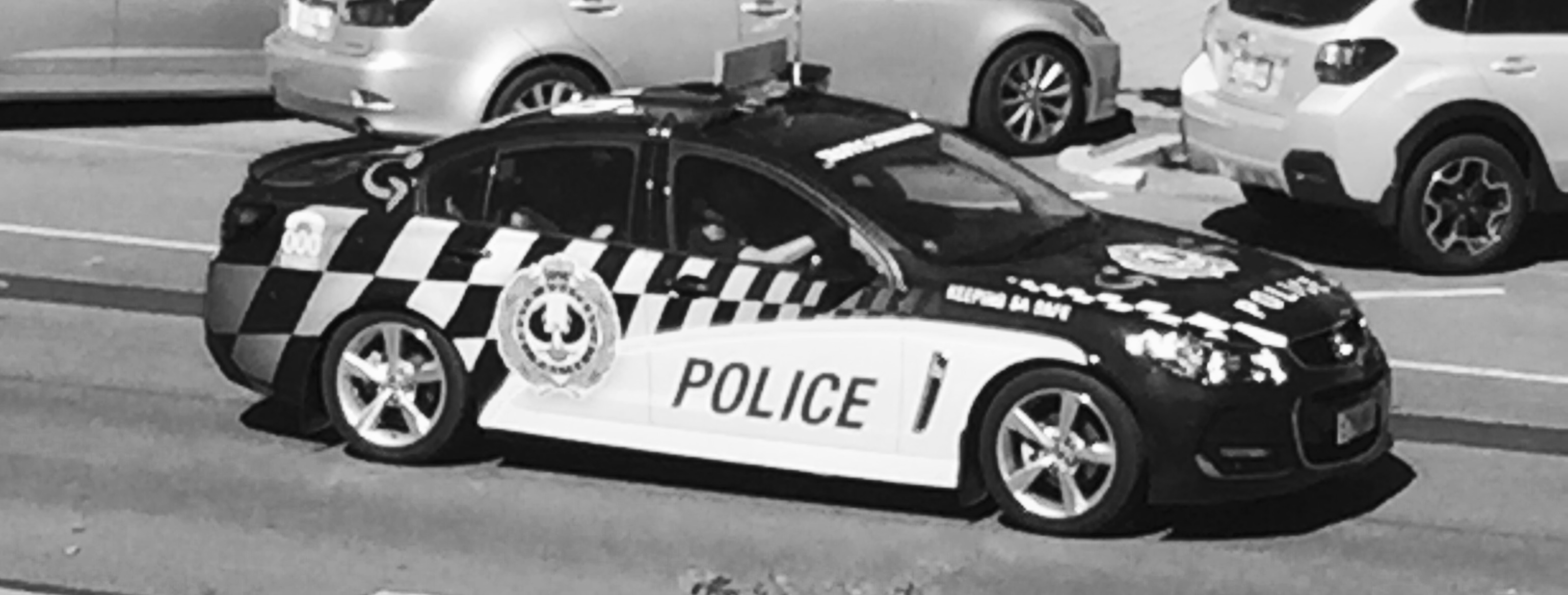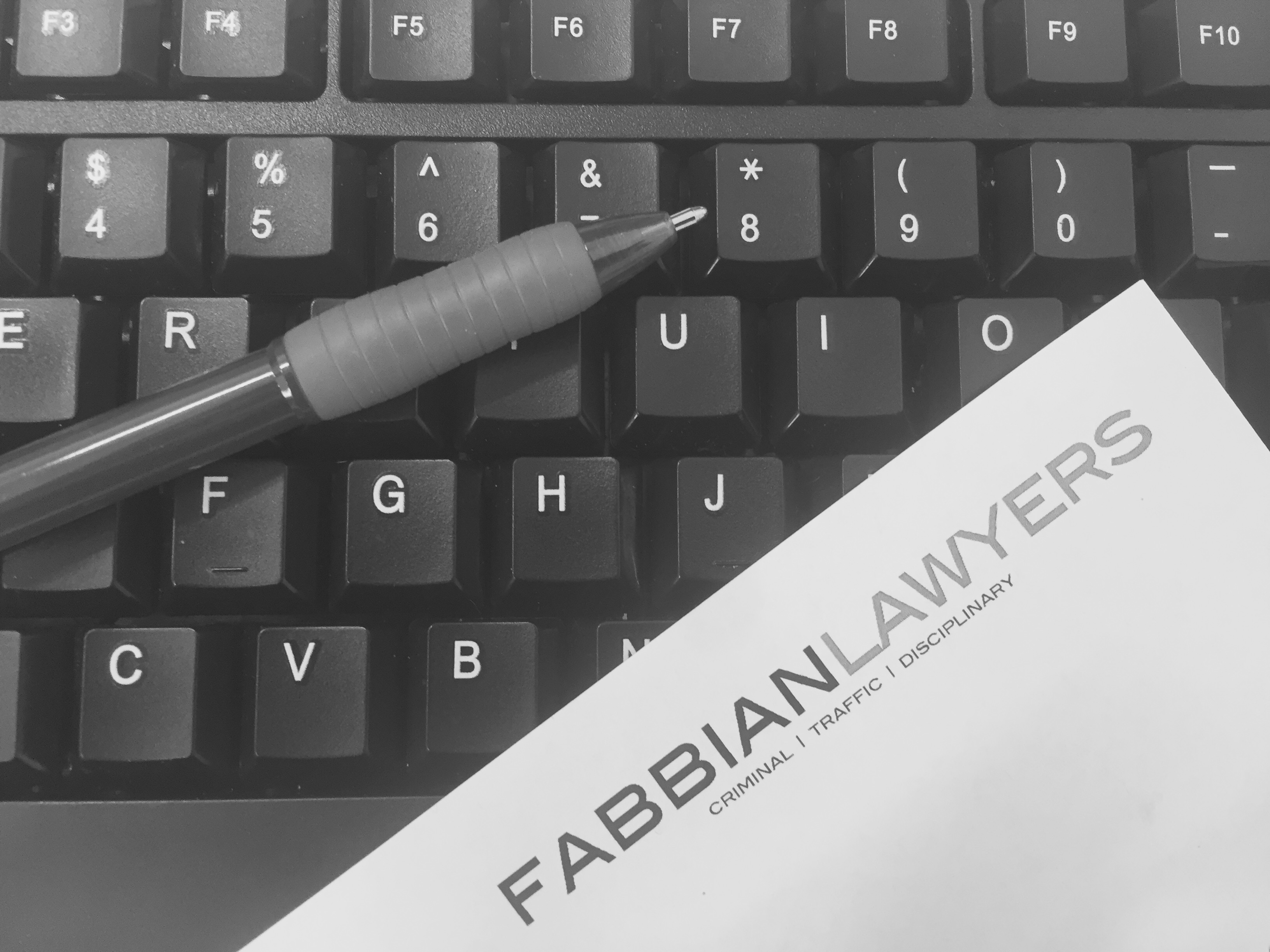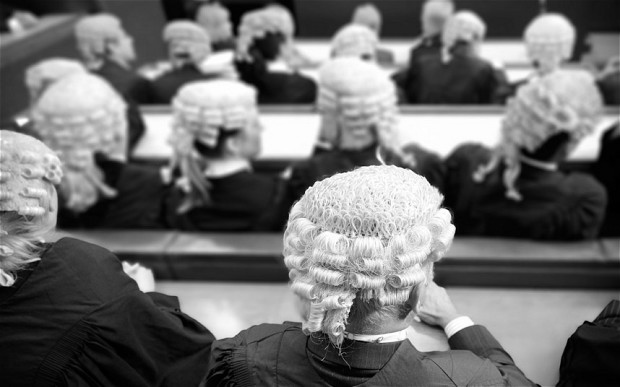Posted on May 5th, 2020.
The penalties (fines) for breaching Coronavirus COVID-19 Restrictions, within South Australia, are imposed pursuant to the Emergency Management Act 2004 (SA). The outbreak of COVID-19 within South Australia has been declared as a Major Emergency. It is a criminal offence to breach a restriction (requirement or direction) imposed in relation to a Major Emergency. For an individual, the fine imposed can vary from $1,000.00 (expiation notice) to a maximum of $20,000.00 (court prosecution).
The restrictions (requirements and directions) imposed within South Australia for reasons associated with the Coronavirus COVID-19 can be found on the Government of South Australia - Legislation Website
>> Section 28 of the Emergency Management Act 2004 states:
28—Failure to comply with directions
(1) A
person must not, without reasonable excuse, refuse or fail to comply with a
requirement or direction of the State Co-ordinator or of an authorised officer
given in accordance with this Act during a declared identified major incident,
major emergency or disaster.
Maximum
penalty:
(a) if the offender is
a body corporate—$75 000;
(b) if the offender is a
natural person—$20 000.
However, an expiation notice can also be issued under the associated Regulations.
>> Regulation 6 of the Emergency Management Regulations 2009 states:
6—Authorised officers may give expiation notices
(1) Subject to the Expiation of
Offences Act 1996, an authorised officer is authorised to
give expiation notices for alleged offences against section 28 of the Act.
(2) The
expiation fee for an offence against section 28 of the Act is fixed at—
(a) in the case of a
natural person—$1 000; or
(b) in the case of a
body corporate—$5 000.
Importantly, it should be noted that an alleged offence may be defended on the basis that there was a ‘reasonable excuse’ for refusing or failing to comply with a restriction (requirement or direction).
Filed under Criminal Law
Posted on July 26th, 2018.
Craig Fabbian and Fabbian Lawyers have again been acknowledged in the Doyles listings for Leading Criminal Lawyers and Leading Criminal Defence Law Firms within South Australia. Craig Fabbian and Fabbian Lawyers have been repeatedly recognised in the Doyles listings ever since they were introduced within South Australia in 2015. The Doyles listings detail solicitors and firms practising in criminal law matters in the South Australian legal market who have been identified by clients and peers for their expertise and abilities in the area.
>> Doyles 2018 - Leading Criminal Defence Lawyers - South Australia
>> Doyles 2018 - Leading Criminal Defence Law Firms - South Australia
Filed under Firm News, Criminal Law
Posted on January 18th, 2017.

Picture from Doyles website - http://doylesguide.com
It is with pleasure that we again advise that Craig Fabbian has recently been named as a leading lawyer in the Doyle’s 2016 listing of leading Adelaide Criminal Lawyers. Additionally, Fabbian Lawyers has been named as a leading Adelaide Criminal Law Firm.
The Doyle’s 2016 listings of leading Adelaide Criminal Lawyers and leading Adelaide Criminal Law Firms detail solicitors and firms practising within the area of criminal defence matters in the Adelaide legal market who have been identified by clients and peers for their expertise and abilities in the area.
It is the second year in a row that Craig Fabbian and Fabbian Lawyers have been named in the Doyle’s Guide Criminal Law listings.
>> Leading Adelaide Criminal Lawyers 2016
>> Leading Adelaide Criminal Law Firms 2016
>> Leading Adelaide Criminal Barristers 2016
Filed under Firm News, Criminal Law
Posted on January 18th, 2017.

It is considered a serious offence to drive a motor vehicle whilst your licence is suspended or disqualified. The maximum penalty for a first offence of driving whilst disqualified is imprisonment for six (6) months. The maximum penalty for a subsequent of driving whilst disqualified is imprisonment for two (2) years.
>> Section 91(5) of the Motor Vehicles Act, 1959 states:
“A person must not drive a motor vehicle on a road while his or her licence or learner’s permit is suspended or while disqualified in this State or another State or Territory of the Commonwealth from holding or obtaining a licence or learner’s permit.”
Courts look particularly serious upon offending that has involved defying an order of disqualification. The Supreme Court of South Australia has explained:
“The offence of driving while under disqualification is a most serious offence, as is indicated by the maximum penalty of six months’ imprisonment prescribed by the section. Its seriousness consists in the defiance of the law which it manifests and in the fact that it nullifies the effect of the order of disqualification which is imposed for the protection of the public. The effectiveness of orders of disqualification from holding or obtaining a driver’s licence depends upon observance of them by the persons disqualified. If they are treated with contempt and ignored by the persons affected, the orders of the court designed to deter offenders and to protect the public are rendered ineffective. The ordinary punishment for driving under disqualification must be imprisonment.”
Courts have several options available when imposing a sentence for driving whilst disqualified. As an alternative to imposing an actual term of imprisonment, the court may order a period of home detention, a suspended term of imprisonment, a bond to be of good behaviour or a fine. The court also has the discretion to impose a further licence disqualification.
It is advisable to seek legal advice of charged with driving whilst disqualified. There are defences available to a charge of driving whilst disqualified. Alternatively, if pleading guilty, it is important to seek legal advice to ensure that your bests interests are advanced during the sentencing process.
The information contained within this article is intended as a general overview and discussion of the subjects dealt with. The information provided here was accurate as of the day it was posted; however, the law may have changed since that date. This information is not intended to be, and should not be used as, a substitute for taking legal advice in any specific situation. Craig Fabbian and Fabbian Lawyers are not responsible for any actions taken or not taken on the basis of this information.
Filed under Traffic Law, Criminal Law
Posted on October 7th, 2016.

**APPLICATIONS NOW CLOSED - POSITION FILLED**
Fabbian Lawyers
is a small Adelaide based legal firm specialising in the areas of criminal and
traffic law. The firm prides itself on providing a high standard of legal work
and offering excellent client service.
A great
opportunity exists for a motivated, friendly and professional legal
secretary. An ability to work independently and also closely with the
principal lawyer is required. Sound typing skills, experience with Microsoft
Office Programs and dictation tasks is sought. Knowledge of PC Law is preferable.
To be
successful in your application you will have outstanding organisational skills,
excellent attention to detail and exceptional communication skills.
Applications close - Thursday, 20 October 2016.
Please forward your application and curriculum vitae to Craig Fabbian via email - craig@fabbianlawyers.com.au or, alternatively, please submit via the SEEK Website.
Filed under
Posted on November 6th, 2015.

Picture from Doyles website - http://doylesguide.com
It is with pleasure that we advise that Craig Fabbian has recently been recommended in the Doyle’s 2015 listing of leading Adelaide Criminal Lawyers. Additionally, Fabbian Lawyers was recommended in the listing of leading Adelaide Criminal Law Firms.
The Doyle’s 2015 listings of leading Adelaide Criminal Lawyers and leading Adelaide Criminal Law Firms detail solicitors and firms practising within the area of criminal defence matters in the Adelaide legal market who have been identified by their peers for their expertise and abilities in the area.
>> Leading Adelaide Criminal Lawyers 2015
>> Leading Adelaide Criminal Law Firms 2015
>> Leading Adelaide Criminal Law Barristers 2015
Filed under Firm News, Criminal Law
Posted on July 15th, 2015.

It is well known that criminal offences involving firearms can attract serious penalties within South Australia. Commonly prosecuted offences under the Firearms Act 1977 (SA) include:
>> Possession of a firearm without holding a firearms licence - Section 11(1)
>> Possession of a firearm for a purpose that is not authorised - Section 11(2)
>> Trafficking in firearms - Section 14
>> Breach of a condition of a firearms licence - Section 21
>> Possession of an unregistered firearm - Section 23(1)
>> Failure to secure a firearm - Regulation 38
>> Failure to store ammunition separately from firearms - Regulation 41
Penalties for firearms offences can include convictions, fines and even imprisonment. South Australian Courts are also permitted to make orders for the forfeiture of firearms and ammunition. Additionally, Courts are permitted to order the suspension, cancellation or disqualification of firearms licenses.
Further information about firearms licenses and the use of firearms can be obtained from the >> Firearms & Weapons SA Police website
We invite you to contact Craig Fabbian of Fabbian Lawyers if you are charged with a firearms offence.
The information contained within this article is intended as a general overview and discussion of the subjects dealt with. The information provided here was accurate as of the day it was posted; however, the law may have changed since that date. This information is not intended to be, and should not be used as, a substitute for taking legal advice in any specific situation. Craig Fabbian and Fabbian Lawyers are not responsible for any actions taken or not taken on the basis of this information.
Filed under Criminal Law
Posted on October 1st, 2014.
Craig Fabbian, the principal of Fabbian Lawyers, has been
pleased to be involved with the University of South Australia Business Career
Mentor Program since 2013. The UniSA Business Career Mentor Program is an
innovative scheme that pairs students and recent graduates with experienced
business professionals such as Craig to enhance employability and leadership
skills.
Recently, Craig was asked to share his brief thoughts with the
UniSA Alumni in relation to what is required for professional success in a criminal law legal practice. The ‘Minute with a Mentor’ article was published in the UniSA Alumni Update: >> Craig Fabbian - Adelaide Criminal Lawyer - Minute with a Mentor
>> UniSA Alumni Update - Issue 9 - 2014
>> UniSA Business Career Mentor Program
Filed under Firm News
Posted on July 1st, 2014.

Fabbian Lawyers understands the importance of ensuring clients are properly informed of all aspects of legal representation including legal costs. We ensure that clients are frankly informed of costs at the very first appointment. Additionally, we keep our clients updated on costs right throughout the period of representation. Importantly we strive to ensure our fees are highly competitive whilst providing a specialist legal defence service for individuals facing criminal and traffic charges.
As from 1 July 2014 changes to the Legal Practitioners Act came into force that impact upon legal costs. Specific changes are designed to ensure that clients engaging lawyers in South Australia can access uniform information regarding legal costs and their associated rights. Information regarding legal costs is to be disclosed by lawyers to clients before, or as soon as practicable after, being retained. Information is also to be disclosed at the time of issuing bills to clients.
Fact sheets have been prepared by the Law Society of South Australia and are made available to clients in accordance with the relevant provisions of the Legal Practitioners Act:
Form 1 - Disclosure of costs to clients (regulation 59) - Legal Costs - Your Right to Know
Form 2 - Notification of client’s rights (regulation 63) - Your Right to Challenge Legal Costs
The fact sheets can also be accessed by visiting the Law Society of South Australia Website.
Please contact Craig Fabbian of Fabbian Lawyers on (08) 8410 0440 if you have any questions regarding instructing a criminal lawyer or traffic lawyer in South Australia.
The information contained within this article is intended as a general overview and discussion of the subjects dealt with. The information provided here was accurate as of the day it was posted; however, the law may have changed since that date. This information is not intended to be, and should not be used as, a substitute for taking legal advice in any specific situation. Craig Fabbian and Fabbian Lawyers are not responsible for any actions taken or not taken on the basis of this information.
Filed under Firm News
Posted on May 19th, 2014.
I am pleading guilty - can I be penalised without receiving a criminal conviction?
Yes. The Criminal Law (Sentencing) Act 1988 allows the court to impose a fine and / or a sentence of community service without recording a criminal conviction. However, the court must be satisfied that certain criteria are met before exercising the discretion. Section 16 of the Act states:
Where a court finds a person guilty of an offence for which it proposes to impose a fine, a sentence of community service, or both and the court is of the opinion—
(a) that the defendant is unlikely to commit such an offence again; and
(b) that, having regard to—
(i) the character, antecedents, age or physical or mental condition of the defendant; or
(ii) the fact that the offence was trifling; or
(iii) any other extenuating circumstances,
good reason exists for not recording a conviction,
the court may impose the penalty without recording a conviction.
Sentencing courts have exercised the discretion in relation to a wide range of offences including theft, assault, cultivating cannabis and minor firearms offences.
It should also be noted that Section 39 of the Act also allows the court, upon a finding of guilt, to discharge a defendant without recording a conviction upon the condition that the defendant enter into a good behaviour bond.
Fabbian Lawyers regularly make sentencing submissions on behalf of defendants seeking that penalties be imposed without the recording of convictions. A successful sentencing application requires thorough preparation combined with careful and persuasive submissions before the relevant sentencing court. It is recommended that a defendant seeking no conviction obtain the assistance of a specialist criminal lawyer.
The information contained within this article is intended as a general overview and discussion of the subjects dealt with. The information provided here was accurate as of the day it was posted; however, the law may have changed since that date. This information is not intended to be, and should not be used as, a substitute for taking legal advice in any specific situation. Craig Fabbian and Fabbian Lawyers are not responsible for any actions taken or not taken on the basis of this information.
Filed under Criminal Law






